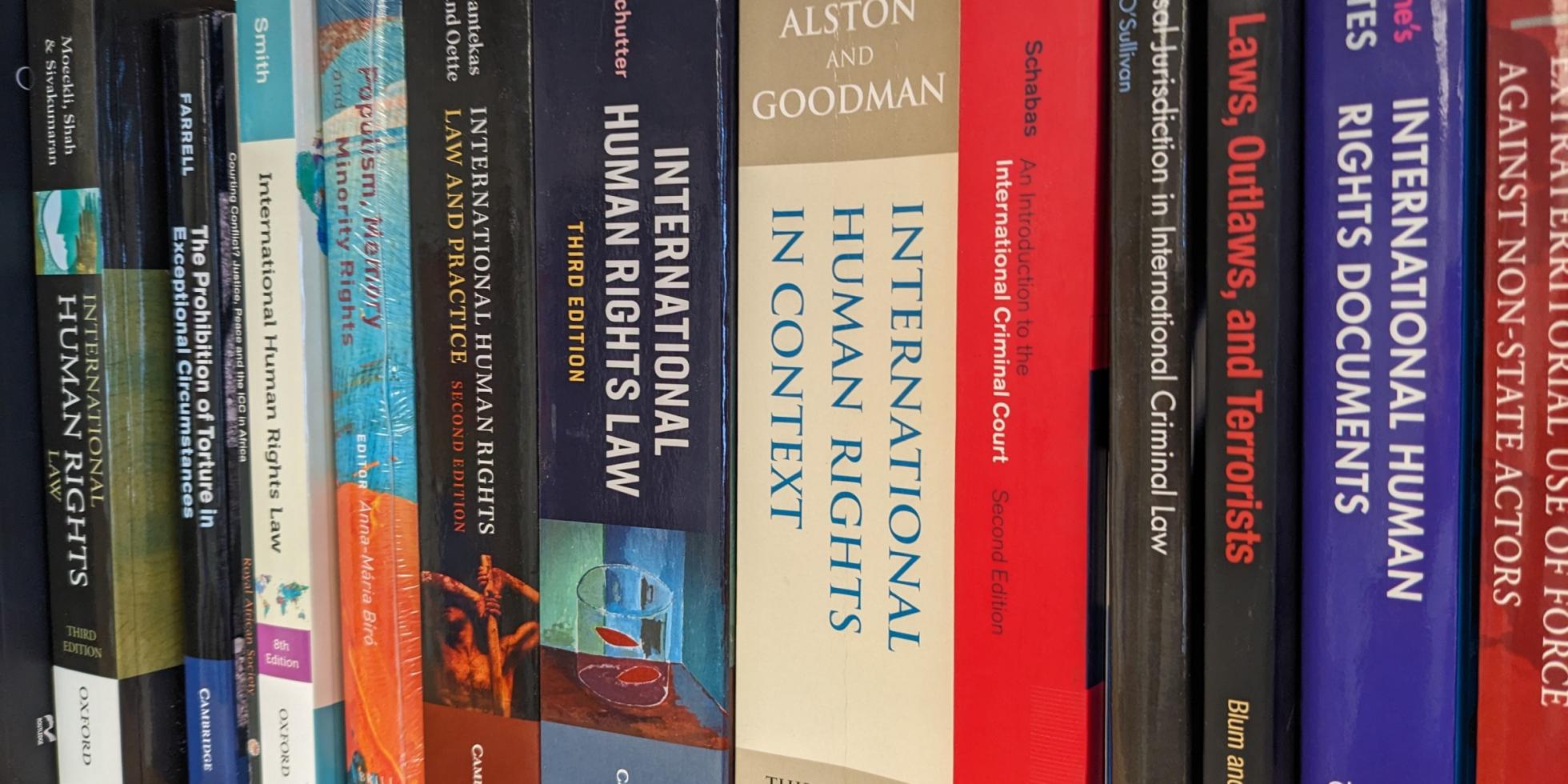The virtual human rights library brings together resources from multiple libraries and information services, both internal and external, to create an online hub dedicated to the study of human rights. This curation is unique in its interdisciplinary concerns and focuses on writings and research from social sciences, humanities, and law.
The virtual library is continually updated with the latest academic research in issue areas, as well as with relevant films, recorded conversations, and other forms of media.
Please Note:
The Virtual Library is usable by all visitors, but the hyperlinks to materials listed are for UChicago community members with a CNet ID and password.
Please direct feedback and suggestions to Kathleen Cavanaugh.
For technical assistance, email pozenhumanrights @ uchicago.edu.
Searchable Database
Click into the dropdowns to select the disciplines, keywords, and media type for your search, and then hit "Apply."
"Without Borders? Notes on Globalization as a Mobility Regime."
While globalization is largely theorized in terms of trans‐border flows, this article suggests an exploratory sociological framework for analyzing globalization as consisting of systemic processes of closure and containment. The suggested framework points at the emergence of a global mobility...
"Wòch nan Soley: The Denial of the Right to Water in Haiti"
This article combines health and water research results, evidence from confidential documents released under the Freedom of Information Act, legal analysis, and discussion of historical context to demonstrate that actions taken by the international community through the Inter-American Development Bank...
"Women against the state: Political opportunities and collective action frames in Chile's transition to democracy."
While transitions to democracy have been hailed as the most important phenomena of this century, few scholars understand the role that women have played in these metamorphoses. This article uses an historical in-depth case study to examine how and why...
"World influences on human rights language in constitutions: A cross-national study."
A recent movement has extended previous emphases on the rights of national citizens by asserting the global human rights of all persons. This article describes the extent to which this change is reflected in the language of national constitutions around...
"World Society Corridors: Partnership Patterns in the Spread of Human Rights."
Considerable sociological work shows that the human rights regime is rapidly expanding through isomorphic processes. We provide new insight into human rights diffusion through an analysis of the Universal Periodic Review (UPR), a global forum in which all states receive...
"Worldwide trends in the criminal regulation of sex, 1945 to 2005."
Between 1945 and 2005, nation-states around the world revised their criminal laws on sexual activities. This global reform wave—across countries and domains of sexual activity—followed from the reconstitution of world models of society around individuals rather than corporate bodies. During...
"You're Likely to Get the Coronavirus"
Most cases are not life-threatening, which is also what makes the virus a historic challenge to contain.
"“Both sides of the story” history education in post-apartheid South Africa."
Scholars have documented the emergence of apparently race-neutral discourses that serve to entrench racial stratification following the elimination of de jure segregation. These discourses deny the existence of both present-day racism and the contemporary effects of histories of racial oppression...
"“I decided to save them”: Factors that shaped participation in rescue efforts during genocide in Rwanda."
Collective action scholars have long examined why people choose to participate in social movements. This article argues that this body of scholarship can be productively applied to understanding rescue efforts during genocide, which have typically been associated with altruism and...
"“There Is an Eye on Us”: International Imitation, Popular Representation, and the Regulation of Homosexuality in Senegal."
Drawing on data from Senegal, this article develops the concept of pockets of world society to explain how adherence to a liberal vision of gay rights emerges within an otherwise illiberal legal landscape. Pockets of world society appear at the...

